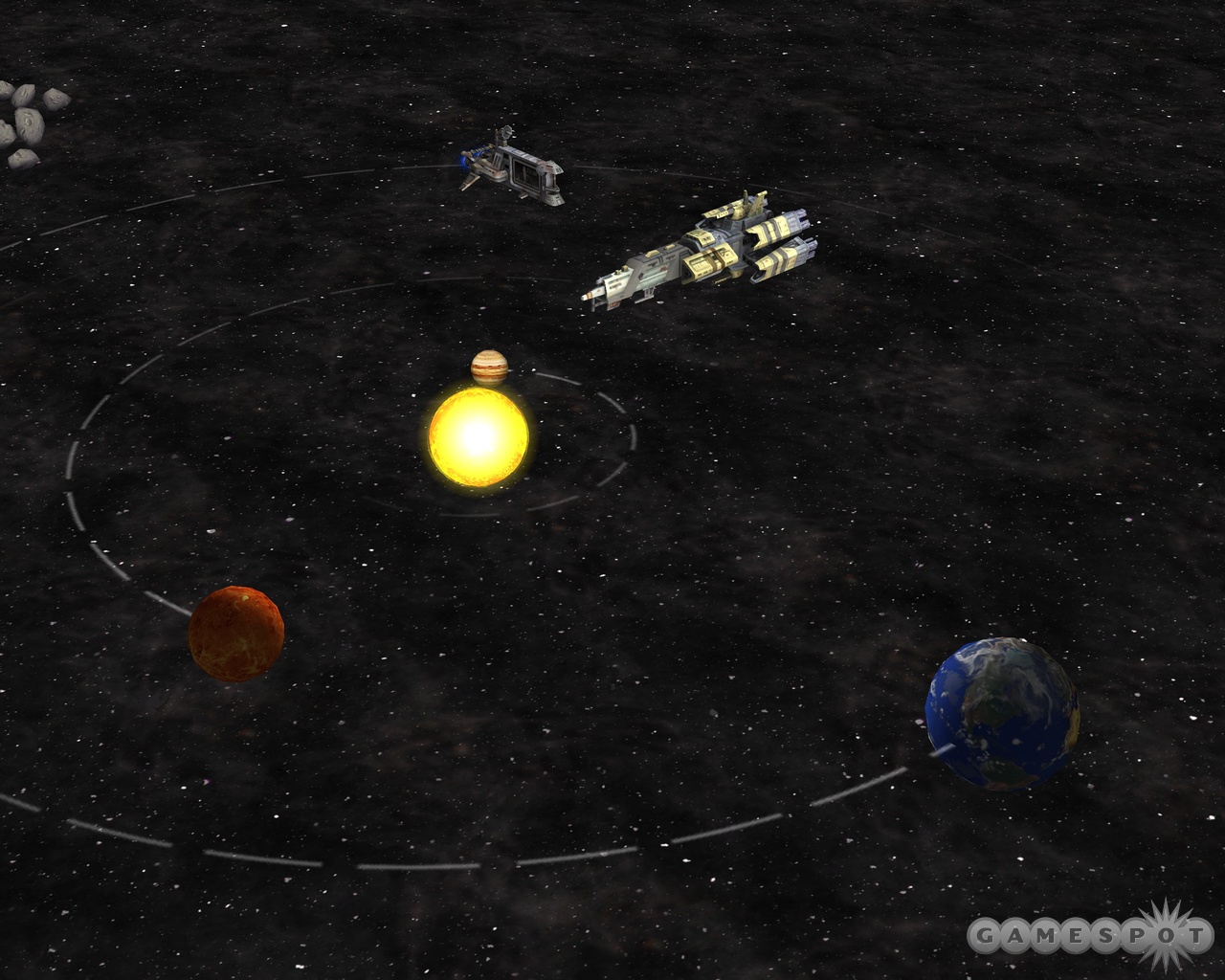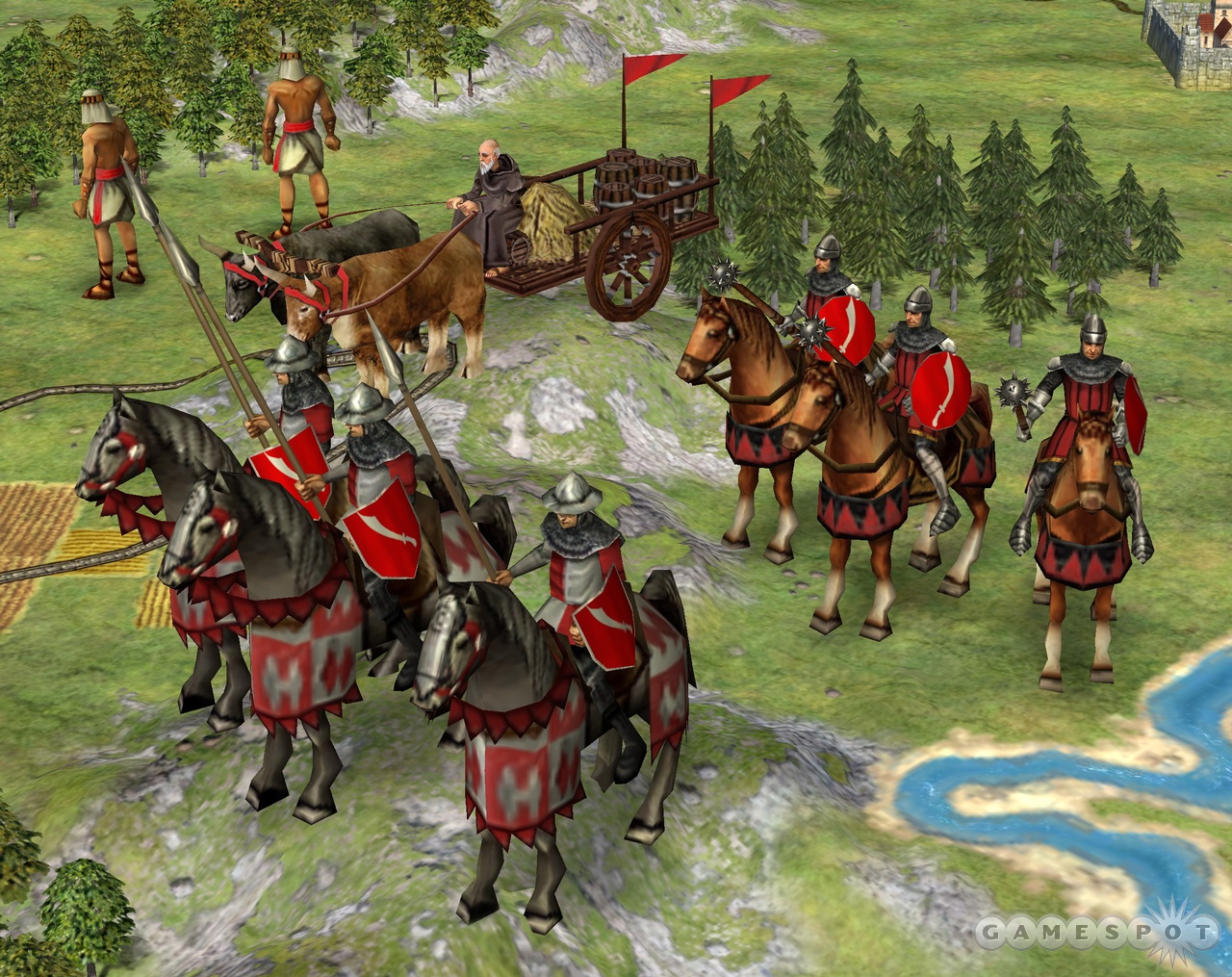Civilization IV: Beyond the Sword Impressions - First Look, New Factions, Espionage, End Game
This expansion for Civilization IV is packed with new scenarios, a revamped space race, better espionage, new civilizations, and much more.
The title of Civilization IV: Beyond the Sword has a couple of meanings. The most obvious is that the second expansion for GameSpot's 2005 PC Game of the Year will feature more modern scenarios, whereas the first expansion centered on ancient ones. However, Beyond the Sword will also put more focus on diplomacy and less on warfare. This expansion looks to bring a lot of fundamental changes and enhancements to the core game of Civ IV. So while the goal will be, once again, to guide your civilization through history, you'll have a bunch of new tools with which to do so.

First, some numbers. Beyond the Sword will introduce 12 scenarios, 10 civilizations, 16 leaders, 5 wonders of the world, 18 building types, and 25 new units. The new civilizations include Native American tribes, as well as Portugal, Babylon, the Netherlands, and Byzantium. The new scenarios are both historical and fanciful. On one end of the spectrum, there are Charlemagne's wars of conquest and at the other there's Final Frontier, a space-based scenario where you build space stations and colonize planets. New units include mobile artillery, mobile surface-to-air missile launchers, tactical nukes that are not as powerful but a lot quicker to make than ICBMs, and paratroops.
That alone would constitute enough for most expansion packs, but Beyond the Sword goes a lot further. If you're the kind of Civ player that likes to enjoy the regular Stone Age-to-Space Age game, the good news is that there are a lot of major improvements and enhancements to the existing formula. This feels like a more fleshed-out version of Civ IV, thanks to the attention to diplomacy and espionage. For instance, there's more help to those players who like to "turtle," or basically play defensively, content to advance their civilizations peacefully rather than through conquest. To that effect, the new Apostolic Palace wonder serves as an early game United Nations. Let's say that you're trying to avoid war. One way to do that is to build the Apostolic Palace and then convert everyone around you to your state religion. You can then use the Apostolic Palace to bring votes on decrees that could basically prevent anyone with your religion from waging war on you.
Espionage has been overhauled drastically, and for the better. One of the complaints about Civ IV is that you can only build spy units after you've built the Scotland Yard wonder, but that happens so relatively late in the game that it makes espionage useless. In Beyond the Sword, you can now invest into espionage each turn, just like you invest in science and culture. All of your espionage points go into a pool, and you can then open up the new espionage screen to use those points to spy or conduct sabotage on rival civilizations. This can range from sabotaging buildings, poisoning water, or fomenting unhappiness. There are still spy units (including ninjas, which are the early-game spies), but their role is a bit different from before. Spies are now invisible to all units, save for other spies. But there's also a new "great spy" unit, which has abilities just like the other great leaders, and these are totally invisible, even to other spies.
The designers also thought about the way religion tapers out in the middle of the game. The fix is a new focus on corporations, which work like religions in that you spread your corporations by dispatching "suits" to other cities. The advantage of a corporation is that if you're short of a critical resource, like oil, there's a way to gain access to it through corporations.

And the space race and end game have also been changed considerably. In Civ IV, you won the game the moment that you could launch your spaceship to Alpha Centauri. The problem was that made the space race seem rather anticlimactic and rushed. So the designers turned to the old space-race system from earlier Civs. In Beyond the Sword, it's not launching first that wins the game; rather, it's getting to Alpha Centauri first. The difference is that the spaceship can now be custom designed, so you can launch as soon as you have the minimum number of components built. However, if you take more time and add extra components, you could construct a better spaceship. If someone launches a spaceship ahead of you, but you know that it's a slow ship, you can build a faster ship and overtake it on the long voyage. Game over.
Finally, fans of the original Civilization may be happy to know that random events are back in the core game, and there are more than 100 of them, so natural disasters such as earthquakes can destroy buildings or diplomatic marriages might suddenly turn two rivals into friends.
There's enough in Beyond the Sword to please the wide range of Civ fans out there. Those who like scenarios that offer new gameplay have plenty to choose from, but those who like the regular game can toy around with the new strategic options. This looks like a must-have expansion for a top-of-the-line strategy game. Beyond the Sword is shipping in July.
Got a news tip or want to contact us directly? Email news@gamespot.com
Join the conversation